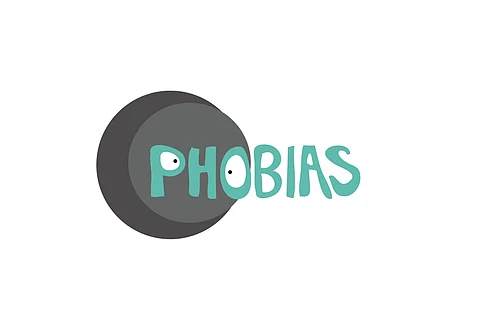
- Mental health mattersMental health matters
- Mental IllnessMental Illness
- Life stagesLife stages
- Caregiving
- Workplace Mental Health
- Legal Matters
- Subscribe

What is a phobia?
Fear is a natural response to a situation that poses a threat to our safety. Some of the fears that people tend to have are fear of snakes, fear of flying in an airplane, or fear of darkness. However, for some people, the impending danger is exaggerated irrationally as a phobia leading to severe anxiety. For instance, a person who has a fear of heights may become extremely uncomfortable and restless in a high-rise building. Also, merely seeing a snake on television can trigger severe anxiety in a person who has a phobia of snakes.
What are the symptoms of phobias?
People suffering from phobias generally show the following symptoms:
Irrational fear of certain objects or situations even when they do not pose any apparent threat.
Avoiding situations that could trigger fear or anxiety.
The physical symptoms when a phobia is triggered may resemble those of a panic attack, such as an increased heart rate, sweating profusely or dizziness.
You may notice these symptoms in people you see around you: family, friends, and people at the office. In such cases, try and talk to the person about seeking help from a mental health professional.
What causes phobias?
Traumatic incidents: Someone who has suffered a traumatic event in their childhood, for instance being bitten by a dog, can develop a phobia over time.
Family history: Research shows that when a parent suffers from mental illness, it is likely that their child will have problems with anxiety, or phobias. Sometimes, children also develop the same phobia as their parents.
Long-term stress: This reduces your ability to cope with some situations, in turn increasing your anxiety and fear. In the long run, this can also result in developing a phobia.
What are the types of phobias?
Phobias are categorized as follows:
Animal phobia: Fear of animals such as dogs, insects, snakes, and so on.
Natural environment phobia: Fear of the natural environment such as fear of heights, fear of water, or fear of darkness.
Situational phobia: Fear of specific situations such as being in an elevator, or flying.
Other phobias: Fear of blood, fear of receiving injections, invasive surgery, or fear of being injured.
Getting treatment for phobias
People generally tend to ignore their phobia as it does not interfere with their daily lives. They also become defensive and avoid situations that could trigger phobia. However, this is not the solution. It is important that you seek help from a mental health expert.
Treatments include either medication or therapy or a combination of both. Most commonly, therapy involves exposing the person to triggers of their phobia in a controlled environment.
Caring for someone with a phobia
As a caregiver, you need to realize that a person suffering from a phobia requires a lot of support and that the fear and anxiety they feel is very real and should not be undermined or mocked. Along with encouraging them to seek professional help, you can try and speak to the person about their fears and find out what helps them in times of distress. Try not to force any situation that could increase their phobia.
Coping with phobia
To cope with your phobia, you need to learn how to manage the panic and anxiety that results from an episode of phobia. In the long run, this helps you feel more in control of your fears. Relaxation techniques and mindfulness can help a great deal in this regard. Joining a support group and speaking to people with the same phobias can help you rationalize your fears. None of the above should substitute the advice of a mental health professional, which should be your primary course of action.
We are a not-for-profit organization that relies on donations to deliver knowledge solutions in mental health. We urge you to donate to White Swan Foundation. Your donation, however small, will enable us to further enhance the richness of our portal and serve many more people. Please click here to support us.
